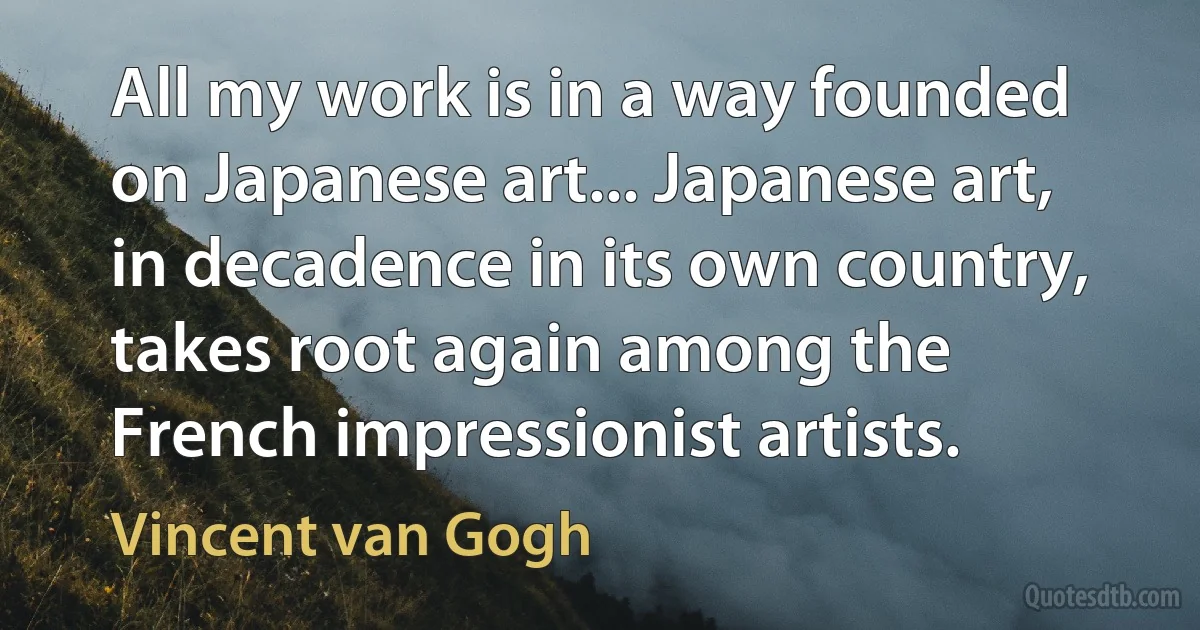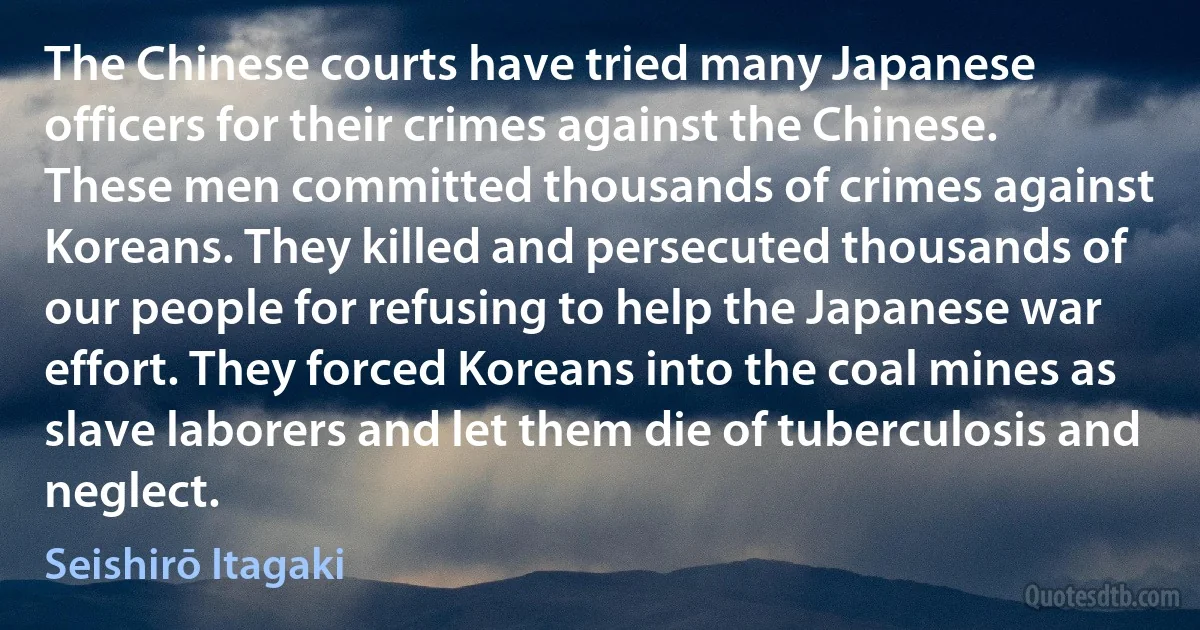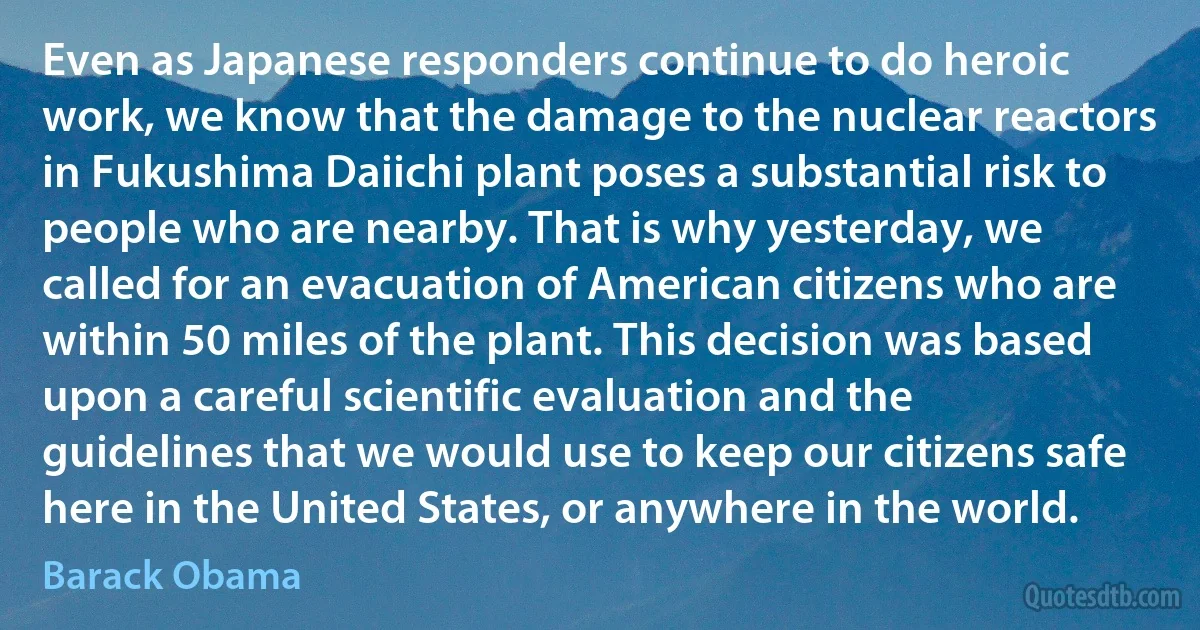Japanese Quotes - page 10
The film has written and spoken dialogue in twenty-five languages-English, French, Japanese, Mandarin, Cantonese, Vietnamese, Latin, Hebrew, necrotic Egyptian ... and it has written calligraphic text on paper, wood, and flesh, on flat and curved surfaces, vertically and horizontally, on both living and dead flesh, in neon, on screens, in projection, as sub-title, inter-title, and sur-title, as High Art and low art, as advertisement and banker's check and registration plate, on photograph, on blackboard, as letter correspondence, as photocopy facsimile, and spoken, chanted, and sung, with and without music ... a mocking challenge. You want text? Cinema wants text? Cinema pretends to eschew text? Then we can give you text to mock that smug suggestion that cinema thinks it is pictures.

Peter Greenaway
About staying in the south, even if it's more expensive - Look, we love Japanese painting, we've experienced its influence - all the Impressionists have that in common - and we wouldn't go to Japan, in other words, to what is the equivalent of Japan, the south? So I believe that the future of the new art still lies in the south after all. But it's bad policy to live there alone when two or three could help each other to live on little.

Vincent van Gogh
I'd like you [Theo] to spend some time here, you'd feel it - after some time your vision changes, you see with a more Japanese eye, you feel colour differently. I'm also convinced that it's precisely through a long stay here that I'll bring out my personality. The Japanese [like a. o. Hokusai, admired by Vincent] draws quickly, very quickly, like a flash of lightning, because his nerves are finer, his feeling simpler. I've been here [Arles] only a few months but - tell me, in Paris would I have drawn in an hour the drawing of the boats?... Now this [sketch] was done without measuring, letting the pen go. So I tell myself that gradually the expenses will be balanced by work.

Vincent van Gogh
American communities require that new housing meet quality requirements that are very high by world or even Western European and Japanese standards. These requirements are designed by middle-class architects, planners, and citizens in conformity with what they believe is decent housing. But their concept of decency far surpasses what is necessary for human health and safety. Consequently, all new American dwellings are too costly for low-income people to occupy without direct subsidies. But subsidies are provided for only a few of the many households with incomes low enough to be eligible for them. So poor people live in unsubsidized older dwellings.

Anthony Downs
Is it not true that our brotherhood transcends distances, different languages, and the absence of close cultural links, and unites us in the struggle? Ought not a Japanese worker be closer to an Argentine laborer, a Bolivian miner, a man working for United Fruit Company or a Cuban cane cutter, than to a Japanese samurai?

Che Guevara
The richest source of power to wage war lies in the masses of the people. It is mainly because of the unorganized state of the Chinese masses that Japan dares to bully us. When this defect is remedied, the Japanese aggressor, like a mad bull crashing into a ring of flames, will be surrounded by hundreds of millions of our people standing upright, the mere sound of their voices will strike terror into him, and he will be burned to death.

Mao Zedong
Less than three months after Japanese capitulation... he discarded all the democratic concepts expressed by his predecessors wartime undertakings... He ditched the Roosevelt thesis and put in first place his declared determination to use the all the power of the government to enable United States imperialism to dominate the post-war world and organize it in its own image.

Tim Buck
Yasuji Okamura, commander of the Japanese forces in China, had this to say about the Chinese Nationalist Army: "The center of resistance was neither the four hundred million Chinese civilians, nor the two million-strong ragtag army composed of local troops. Instead, it was the Central Army, led by the young officers of the Whampoa Military Academy, with Chiang Kai-shek at its nucleus. In numerous major battles, the Central Army not only was the main force engaged in combat, but also oversaw the local troops who were increasingly losing the will to fight. The Central Army kept the local troops from wavering. As seen, training by Whampoa was thorough, and it was impossible to resolve the China Incident peacefully with the existence of such an army.

Yasuji Okamura
Godzilla is the ultimate culmination of the "who cares about plot" summer movie. A loose remake of the 1954 "classic" Japanese monster movie, Godzilla, King of the Monsters (which is itself pretty thin in the story department), Roland Emmerich and Dean Devlin's big-budget lizard-stomps-Manhattan disaster flick has been written with the brain dead in mind. The script isn't just "dumbed down," it's lobotomized. Godzilla lives and dies on special effects alone.

James Berardinelli
Rachel Trachtenburg: I really like the food at that place (Sidewalk Cafe). They have salads and pastas and stuff like that. What's your favorite food?
Kimya Dawson: I like cherries.
Rachel: That's a fruit. I said food.
Kimya: Fruit's food.
Rachel: You don't sit down and eat it. You don't eat it at a restaurant, like, "Oh, I'd like a fruit, please." You say, "I'd like a pizza please, or the pasta." Do you like Indian food? Mexican food? Italian food?
Kimya: Japanese food.
Rachel: Okay.

Rachel Trachtenburg
Yahtzee was born in Warwickshire, England, on the day of the great storm of 1983. Twenty years later, when England had become too small to accommodate the five hundred kilometre-wide tumour growing out of the back of his neck, he moved to Brisbane, Australia, where a chance encounter with an enraged surfer caused the tumour to become detached. It has now gone on to star in a number of Japanese fetish videos, while Yahtzee occupies a treehouse on the edge of the city, struggling to learn how to live with corks around his hat. The enraged surfer tries to keep in touch, but Yahtzee never answers his phone.

Ben Croshaw
It had been a long journey. Tien Pao had lost count of all the days and nights. But all those nights when the horns of the new moon had stood dimly in the sky, Tien Pao and his father and mother had pushed the sampan on and on against the currents of the endless rivers. Day and night. There was no stopping even at night. "We won't stop until we drop," Tien Pao's father had kept saying over and over. "And we won't drop until we are far inside this great land of China. Far from the sea-for where the sea is, there the Japanese invaders are."

Meindert DeJong
Those are the victories they won, with iron wills and hope in their hearts. That is the transformation that they wrought, with each step of their well-worn shoes. That's the debt that I and millions of Americans owe those maids, those laborers, those porters, those secretaries; folks who could have run a company maybe if they had ever had a chance; those white students who put themselves in harm's way, even though they didn't have; those Japanese Americans who recalled their own internment; those Jewish Americans who had survived the Holocaust; people who could have given up and given in, but kept on keeping on, knowing that "weeping may endure for a night, but joy cometh in the morning.”.

Barack Obama
I am confident that Japan will recover and rebuild because of the strength and spirit of the Japanese people. Over the last few days, they've opened up their homes to one another. They've shared scarce resources of food and water. They've organized shelters, provided free medical care, and looked out for their most vulnerable citizens. One man put it simply: "It's a Japanese thing. When hard times hit, we have to help each other.”.

Barack Obama



